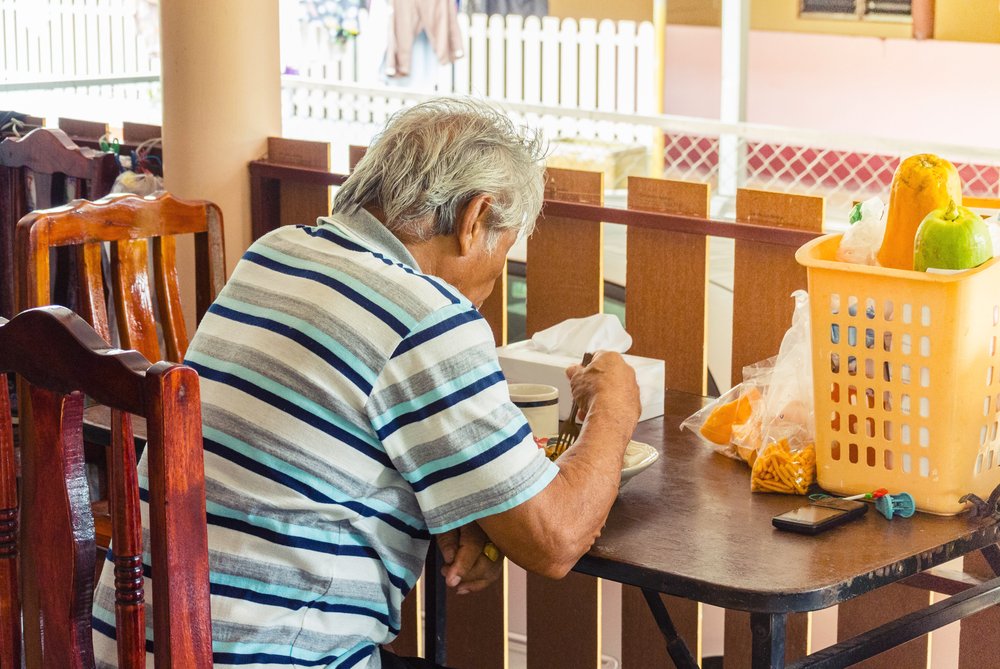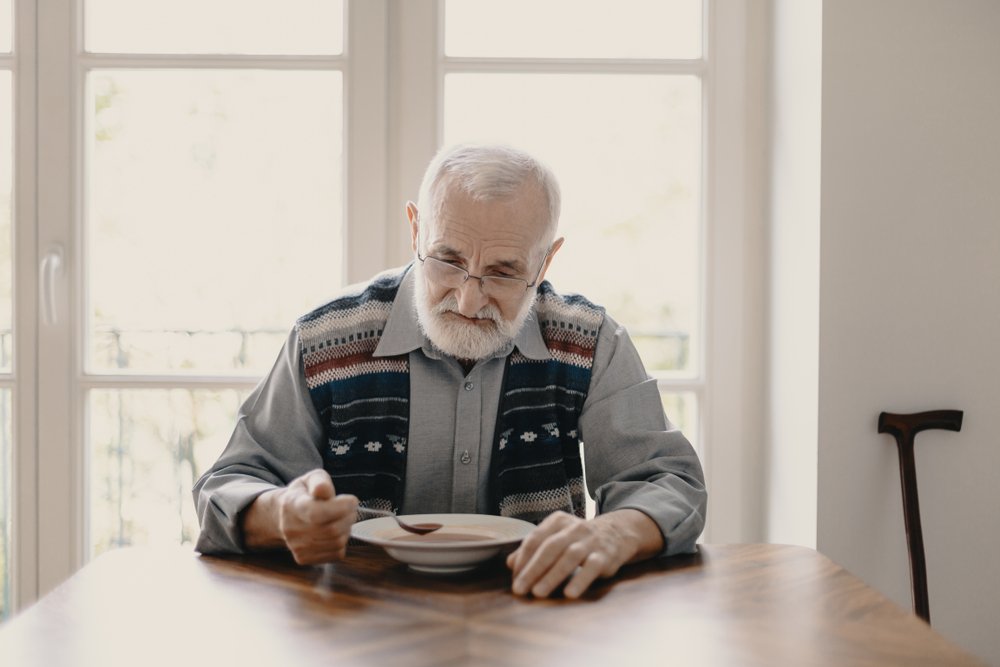Last Updated on February 14, 2024 by Lifevif Team and JC Franco

Have you ever thought that your nightly solo dinners could be bad for you? Are your eating habits introducing negativity to your life? They could be. In fact, they probably are! Do you want to know why eating alone is bad for you? I will give you several compelling reasons why you should think twice before having your next meal alone.
Yup, it’s true. Eating alone often isn’t good for you. Check out the 15 reasons why eating alone is bad.
15 reasons why eating alone regularly can be bad for you:
Table of Content
Toggle1. Increased risk of metabolic syndrome.
Let’s talk about metabolic syndrome – the syndrome nobody wants to have. Did you know that eating alone makes you up 3 times more likely to develop metabolic syndrome than people who share their meals with others? You might wonder how that is true. Well, metabolic syndrome is a combination of a variety of illnesses such as high blood pressure, obesity, and heart disease. Eat with a friend and avoid this unkind condition!
2. Increased risk of self-isolation.
Have you ever heard of someone just becoming more and more “anti-social”? They could have been self-isolating, which is generally something that happens when you spend too much time alone. When a person stops spending time with other people, they initially start to feel isolated, but that isolation may then lead to further self-isolation.
The more someone doesn’t spend time with other people, the less time they may want to spend with other people. And that’s not very good for your mental health.
3. Increased risk of unimaginative or boring meals.
Nobody wants to lead a boring, unimaginative, and uneventful life. Eating alone could be the start of a life that’s just like that. Let’s face it, cooking a meal and sharing it with a friend is always something that involves more thought and planning than eating alone.
Meals shared with someone can be fun, interesting, and imaginative. Add a bit of fun to your life – share a meal with someone you care about.
4. Prone to depression or feelings of loneliness.
Do you eat alone and also feel quite lonely and sometimes depressed? Perhaps you feel even more depressed on the days that you eat alone. Studies have proven that people who consistently eat alone are more prone to feelings of depression and loneliness than people who share their meals with others. Think of the child on the playground with no one to share his/her meal with – not a happy picture, is it?
5. Meals become rushed.
When there is no one to sit down and share a meal with, the meal becomes more of a means to an end than an actual experience. Rushed meals can lead to all sorts of physical conditions and discomforts such as indigestion, acid reflux, heartburn, constipation, bloating, belching, and more.
By taking the time to share a meal with someone, you can slow things down and actually enjoy the meal (and the lack of negative side effects too).
6. Greater risk of feeling alienated or left out.
Nobody wants to feel alienated, but there are many people who do. Inviting someone to share a meal with you could be helping them as much as it is helping you. If you sit alone in the work cafeteria or restaurant when there is the option to join a table of people, chances are that you will feel alienated or left out of the group. Over time, this feeling can become really detrimental to your mental health.

7. Increased risk of obesity.
Obesity is a sensitive topic for some people, but it has to be mentioned. When you eat alone, there’s the opportunity to overeat. If you are feeling lonely, you might even do a bit of comfort eating. If you eat alone often, you might eat take out as well as overeat often, which can be a direct cause of obesity.
8. Increased risk of weight loss or malnutrition.
If you eat alone and aren’t prone to overeating or comfort eating, you might start to skip more meals or eat meals with poor nutrition. Unfortunately, this can lead to a serious loss of weight and deterioration of your overall health. Studies show that shared meals are often on the healthier side.
9. More chance of making unhealthy food choices.
Why does eating alone lead to poor food choices? It’s probably because we care less for our own physical health than we do for others’. When eating with someone else, you are generally interested in their health and wellbeing, and so will make fairly balanced meal choices.
When eating alone, people are prone to eating convenience foods or something that is “quick and easy”, which invariably is unhealthy. Unhealthy food choices might not have a negative impact immediately, but if you consistently eat unhealthy meals, you will start to notice a change in your physical appearance and your general health (your immune system will take a knock).
10. Can be expensive in the long run.
Let’s talk about money – something that is important for most of us. Eating alone often means eating takeout or convenience meals, which we all know can be costly. In the long run, these meals for one are far more expensive than cooking a meal for two or buying combo meals, even at takeout restaurants. People who share meals with other people are more prone to eating fresh fruit and vegetables (which can be cheaper) and cooking balanced, nutritional meals.
11. Greater chance of being behind the times.
It is common knowledge that people share information and ideas when they are together sharing a meal. It is when and how the family shares ideas, students discuss pressing matters, and even couples make important decisions.
For many people, meals are a time to exchange news. It is how information spreads around the world. If you don’t share meals with people, you might find that you are a bit behind the times with the latest news. You might find yourself unsure of what people are talking about when you are around people.
12. Increased risk of a decline in productivity.
Studies have shown that people who share meals with others generally tend to be more upbeat and productive. Take the office space, for instance. When staff members share their lunch hours together and discuss ideas, let off some steam, and socialize, they can return to the workspace ready to work and achieve even more of their goals.
13. Diminished social skills.
Mealtimes are for sharing and socializing. If you spend a lot of time alone, you might find your social skills diminishing. People sharing meals set boundaries in terms of social norms. The more time you make for sharing meals with other people, the more up to date you expect your social skills to be (along with your self-esteem and confidence levels too).
14. Increased stress levels.

People who take the time to “break bread” together generally experienced decreased stress levels when in each other’s company. If you only ever eat alone, you might find that your stress levels are heightened and that you struggle to relax and unwind. Sharing a meal is a significant part of the day for people, especially in highly stressful jobs. It’s a time to let of some steam, to get some support, to de-stress, and to share a good meal at the same time.
15. Deprivation from the good feeling of sharing.
There’s a saying that goes “sharing is caring”, and it is oh-so-true and relevant to shared mealtimes. When you take the time to share a meal with someone, you get those feel-good hormones flooding through your veins. These feelings leave you feeling lighter, relaxed, and happier than you might have felt before the meal. When you eat alone, you are essentially deprived of those good feelings.
All things considered
When it comes to eating a meal, consider what is important to you. Are you just eating to survive, or would you like to use meals as a way to introduce positivity and health to your life? Eating alone regularly isn’t good for you. If you are a solo eater, perhaps it is time to change that.
This article was co-authored by our team of in-house and freelance writers, and reviewed by our editors, who share their experiences and knowledge about the "Seven F's of Life".
-
Lifevif Team
-
Lifevif Team
-
Lifevif Team
-
Lifevif Team
-
Lifevif Team
-
Lifevif Team
-
Lifevif Team
-
Lifevif Team
-
Lifevif Team
-
Lifevif Team
-
Lifevif Team
-
Lifevif Team
-
Lifevif Team

JC Franco
JC Franco is a New York-based editor for Lifevif. He mainly focuses on content about faith, spirituality, personal growth, finance, and sports. He graduated from Mercyhurst University with a Bachelor’s degree in Business, majoring in Marketing. He is a certified tennis instructor who teaches in the New York City Metropolitan area. In terms of finance, he has passed the Level I exam of the CFA program.
